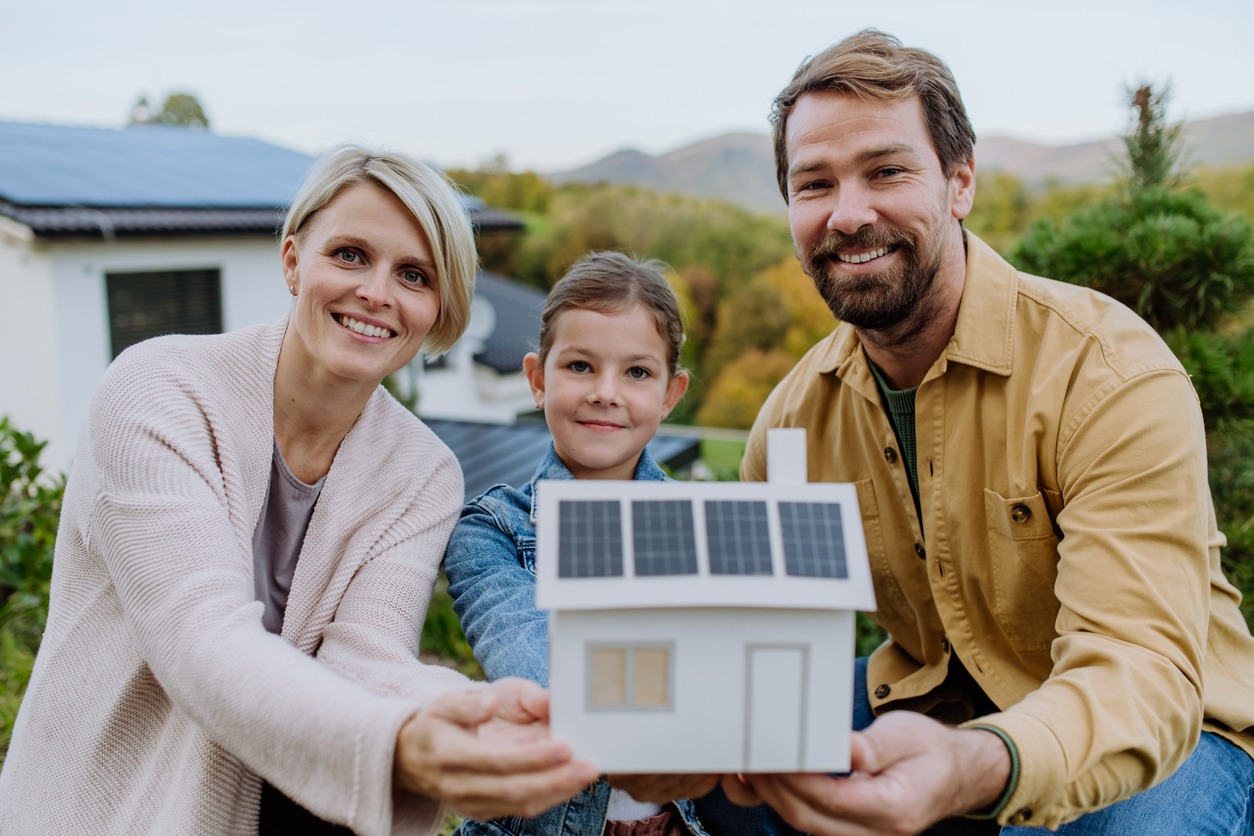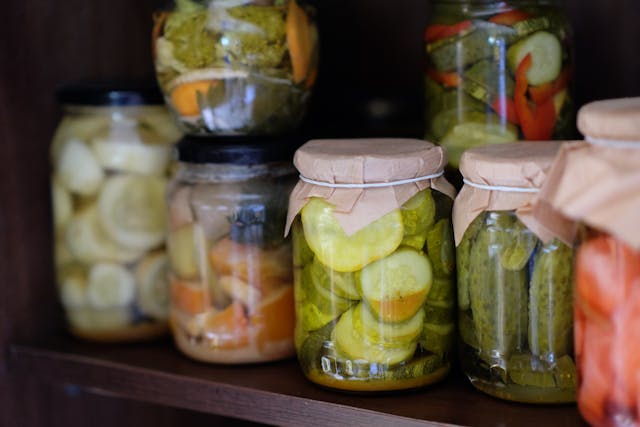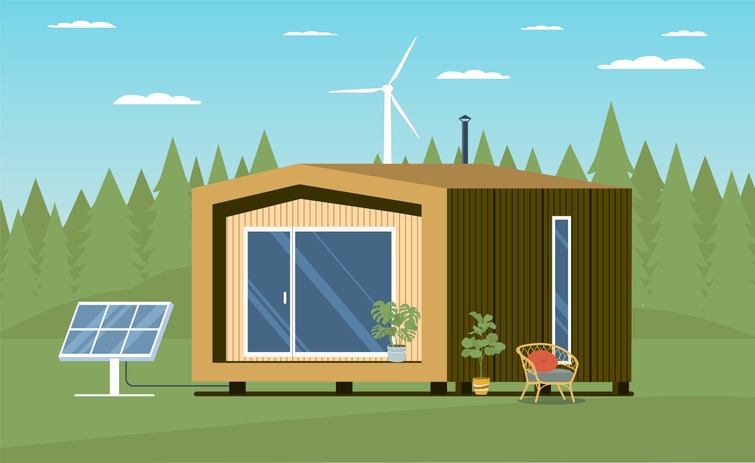Have you ever wondered if the dream of off-grid living is as idyllic as it’s portrayed? You’re not alone. Venturing into the wilderness, away from the hustle of modern life, comes with its fair share of trials—securing a reliable power source, ensuring a consistent water supply, and tackling the steep learning curve of food self-sufficiency.
Yet, the allure of a smaller carbon footprint, financial freedom, and a closer bond with nature remains undeniable. Let’s explore together the intricate balance between the hardships and rewards of this lifestyle, and perhaps uncover why so many are drawn to this challenging yet fulfilling way of life.
Generating Reliable Power
To generate reliable power off-grid, you’ll need to assess your energy consumption and consider options like solar power, which offers sustainability and long-term benefits. Integrating solar panels into your system is a popular choice, harnessing renewable energy directly from the sun. However, it’s crucial to tailor your power setup to match your actual needs. By evaluating your off-grid power usage, you can optimize efficiency, such as running one appliance at a time to conserve energy.
Exploring alternative energy sources is also a smart move. Depending on your location and budget, wind turbines or micro-hydro systems might be viable options, adding diversity to your power generation capabilities. These renewable sources can complement your solar setup, ensuring a more consistent energy supply.
For heating and cooking, consider a wood stove or gas as reliable alternatives. These options can reduce your reliance on electricity, further optimizing your off-grid living situation. Remember, the key to generating reliable power off-grid lies in a well-considered blend of renewable energy sources and efficient usage practices.
Securing a Water Source
While securing a reliable water source off-grid might seem daunting, especially in areas with water scarcity, there are effective strategies to ensure you have the water you need. Water scarcity, particularly in high desert regions, poses significant off-grid challenges. However, with the right approach to water management, you can overcome these hurdles.
Rain catchment systems become indispensable in maintaining a sustainable water supply for off-grid living. They capture rainfall, which varies throughout the year, urging you to plan and conserve water diligently.
Implementing gray water systems is another smart move. These systems recycle water from your sinks and showers for garden irrigation, significantly reducing water waste. This practice is crucial given the limited water access inherent to off-grid locations. It prompts a heightened awareness of your water consumption and necessitates adopting efficient water management practices.
Food Self-Sufficiency
Achieving food self-sufficiency off-grid requires establishing a kitchen garden and raising livestock, essential steps in creating a sustainable lifestyle. You’ll find that managing your kitchen garden and caring for your livestock not only secures a significant portion of your diet but also connects you deeply with the cycle of life and seasons.
Diving into food preservation methods like canning and freezing, you’ll extend the shelf life of your garden’s bounty for year-round availability. Trading with neighbors brings in the variety and essentials you might lack, crafting a community of shared resources and knowledge.
Incorporating hunting adds fresh meat to your diet, furthering your self-sufficiency. By diversifying your food sources to include a range of fruits, vegetables, grains, and proteins, you ensure a balanced diet that supports health and energy for all off-grid tasks.
| Strategy | Benefit |
|---|---|
| Kitchen Garden | Ensures a steady supply of fresh produce. |
| Livestock | Provides meat and possibly dairy. |
| Food Preservation | Extends food availability throughout the year. |
| Trade | Adds diversity and fills gaps in your food production. |
| Hunting | Supplements diet with fresh meat. |
Embracing these strategies nurtures a lifestyle of self-sufficiency, resilience, and deep connection to your environment.
Navigating Isolation
After exploring food self-sufficiency, let’s tackle another aspect of off-grid living: navigating isolation. You might find yourself wrestling with isolation challenges when you choose the off-grid path. Yet, there’s a silver lining. Joining online off-grid communities can be a lifesaver, offering you valuable support and advice. These platforms connect you with experienced off-gridders who’ve been in your shoes and can share insights on mitigating feelings of solitude.
Collaborating with like-minded individuals on shared workloads can significantly ease the sense of isolation. It’s not just about dividing tasks; it’s about building bonds. Engaging in product or service trading within your off-grid community fosters a deep sense of connection. It creates an ecosystem where everyone supports each other, reducing feelings of isolation.
Financial Considerations
Diving into the financial aspects of off-grid living, you’ll discover both potential savings and upfront costs that require careful consideration. Setting up your off-grid home involves significant initial investments in a reliable power source, water source, and waste management system. These systems are crucial for an energy-efficient lifestyle that aims to conserve water and minimize your carbon footprint. However, the financial benefits of these upfront investments can be substantial over time.
By tailoring your energy system to harness natural resources, you’re not only reducing your reliance on municipal services but also erasing utility bills that can add up. Off-grid living also encourages you to reduce expenses in other areas of life, such as groceries, transportation, and leisure activities, by promoting a lifestyle that values self-sufficiency and mindful consumption.
However, it’s important to balance this self-sufficiency with community reliance, as sharing resources and knowledge can lead to more sustainable and financially viable living arrangements. Embracing the off-grid lifestyle means being prepared for both the initial financial outlay and the ongoing commitment to conserving resources, but the payoff is a reduced environmental impact and a sense of independence that’s hard to beat.
Embracing Environmental Stewardship
While considering the financial aspects of off-grid living, it’s equally important to focus on its role in fostering environmental stewardship. Embracing off-grid living means you’re stepping into a realm where your daily actions directly contribute to a healthier planet. This lifestyle pivot towards sustainable practices not only minimizes your carbon footprint but also challenges you to live in harmony with the environment.
Here’s how off-grid living nurtures environmental stewardship:
- Renewable Energy Use: By harnessing solar, wind, or hydro power, you’re reducing reliance on fossil fuels, thereby decreasing pollution and promoting a cleaner environment.
- Water Conservation and Waste Management: Implementing systems for rainwater collection and composting toilets can significantly lessen water usage and manage waste more effectively.
- Energy Efficiency and Eco-Friendly Lifestyle: Building energy-efficient homes and adopting an eco-friendly lifestyle are at the heart of off-grid living, ensuring that every aspect of your life contributes to conservation efforts.
The rewards are substantial, from energy efficiency, reduced pollution, to a healthier ecosystem. However, adapting to an eco-friendly lifestyle, facing initial setup costs, and maintaining consistent conservation efforts present challenges. Despite these, the shift towards off-grid living is a powerful step towards embracing environmental stewardship.
Conclusion
Embracing off-grid living means tackling challenges head-on, from generating your own power to securing water and food sources. You’ll navigate isolation and manage finances carefully. Yet, the rewards are profound. You’ll reduce your carbon footprint, save money, and foster a deep connection with nature.
By embracing this lifestyle, you’re taking a significant step towards environmental stewardship and self-sufficiency. It’s a journey filled with learning and growth, leading to a uniquely fulfilling way of life.





